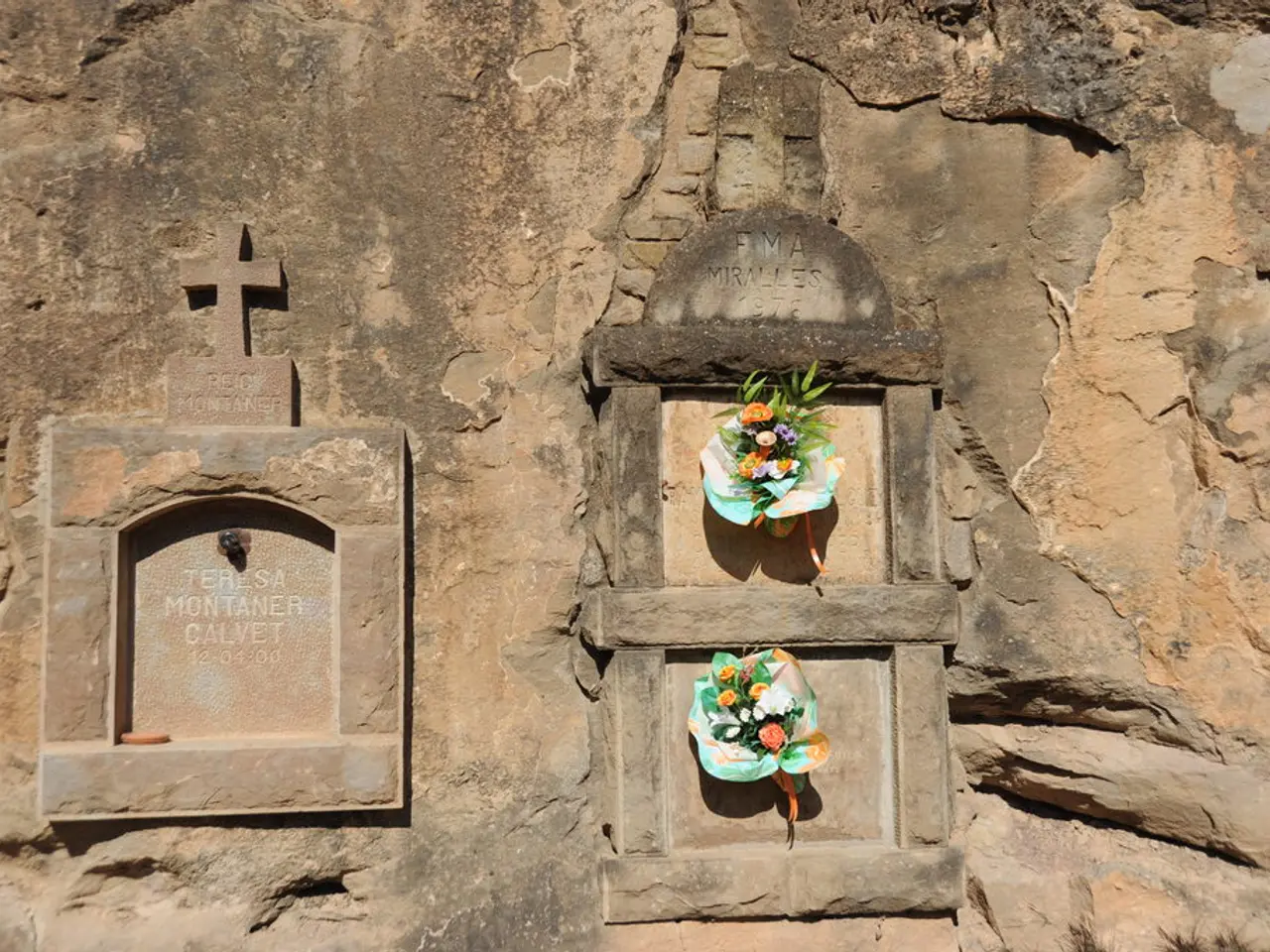Trump's political approach potentially disrupting America's 250th anniversary celebration?
In the lead-up to America's 250th anniversary in 2026, a divisive narrative is taking shape, with concerns being raised about the focus on patriotism and flags over the full story of the nation's history. Kerry Tymchuk, the executive director of the Oregon Historical Society, has expressed his apprehensions, stating that the plans seem to overlook the depth and complexity of America's past.
Donald Trump's vision for the national celebration includes an unprecedented UFC fight at the White House and the presentation of the largest U.S. flag in history. However, this focus on spectacle has raised eyebrows among historians and state planners, who fear a lack of resources and potential partisanship in the celebrations.
The White House has conducted a review of the Smithsonian Institution, demanding that its 250th content aligns with Trump's call for programming that renews national pride. This move has sparked criticism from John Dichtl, president of the American Association for State and Local History, who has spoken out against the Trump administration funding cuts and potential censorship of historical information.
In contrast to the federal government's involvement in the 1976 Bicentennial, where states were given more resources to celebrate as they saw fit, the Trump administration's approach seems to favour a more centralised and partisan approach. The US Semiquincentennial Commission, a nonpartisan body created by Congress in 2016, is supposed to oversee national programming for 250th celebrations. However, Trump allies have reportedly influenced the planning by pushing for a patriotic, nationalist narrative that emphasises American exceptionalism.
This shift in focus has affected the tone and messaging of the U.S. 250th anniversary celebrations. For instance, America250.org, a nonprofit tasked with carrying out the celebrations, has partnered with right-wing groups like Moms for Liberty, known for efforts to ban certain books from schools.
Some state-level 250th plans have been cancelled due to the Trump administration's cuts to state humanities councils, with funds being directed instead to a "National Garden of American Heroes" proposed by Trump. Meanwhile, some state legislatures, like Virginia, Pennsylvania, and South Carolina, have budgeted millions of dollars, while others, such as Alaska and Maine, have not set aside state dollars specifically for celebrations.
The Department of Agriculture has asked states to compete to have their fair chosen by Trump as the "most patriotic" for the Great American State Fair initiative. Idaho, for one, has enlisted "Founding Father Spuddy Buddies," or potato mascots dressed up as Founding Fathers, to appear at state fairs.
As the nation prepares to commemorate its 250th anniversary, the debate over the appropriate tone and focus of the celebrations continues. The 1976 Bicentennial, marked by states receiving the inflation-adjusted equivalent of more than a quarter million dollars for the celebrations, seems a far cry from the current landscape. M.J. Rymsza-Pawlowska, a historian at American University, has written a book about the 1976 Bicentennial celebration, offering a valuable perspective on how the nation has evolved in its approach to national anniversaries.
Meanwhile, Hawaii is organising a simultaneous reading of the Declaration of Independence that will take place across the nation, offering a counterpoint to the more partisan vision of the Trump administration. As the 250th anniversary approaches, it remains to be seen how the nation will come together to celebrate its rich and complex history.
Read also:
- Lu Shiow-yen's Challenging Position as Chair of the Chinese Nationalist Party (KMT) Under Scrutiny in Donovan's Analysis
- "Trump Criticizes EU's $3.5 billion fine on Google as Unjust, Threatens Additional Tariffs"
- Restructuring community adaptability amidst multiple concurrent crises
- Sanders' Campaign Advisor Discusses Candidate's Political Standing








